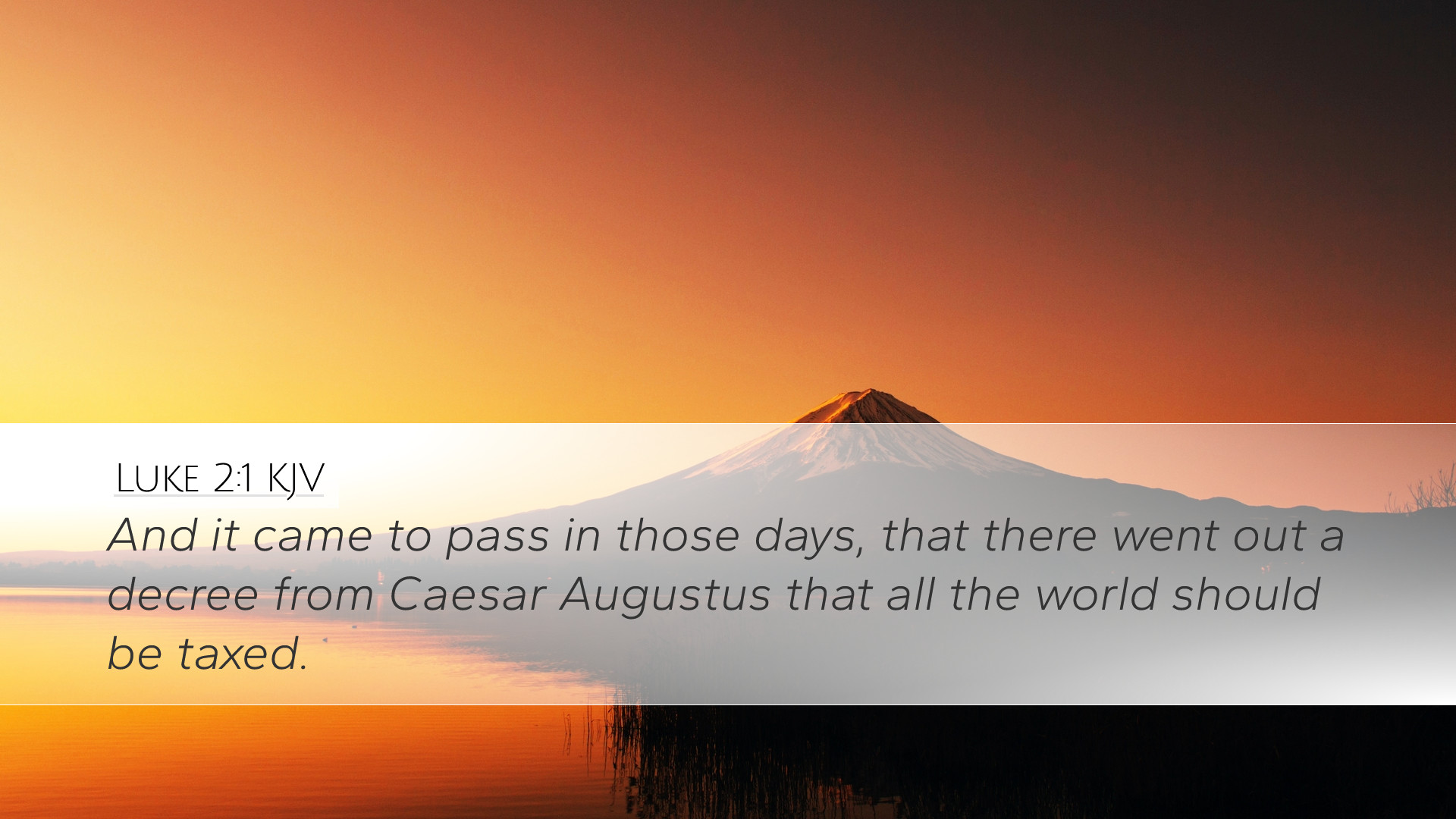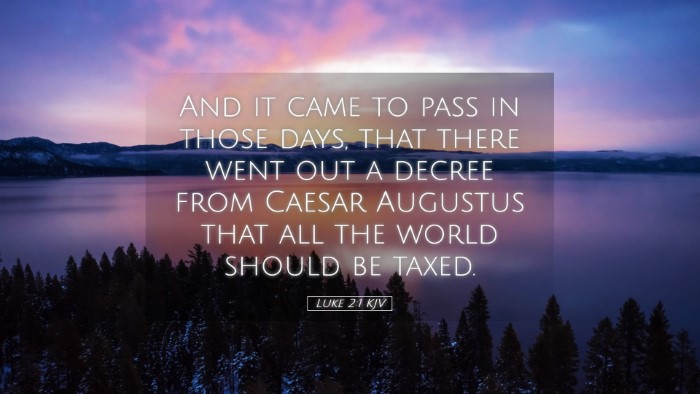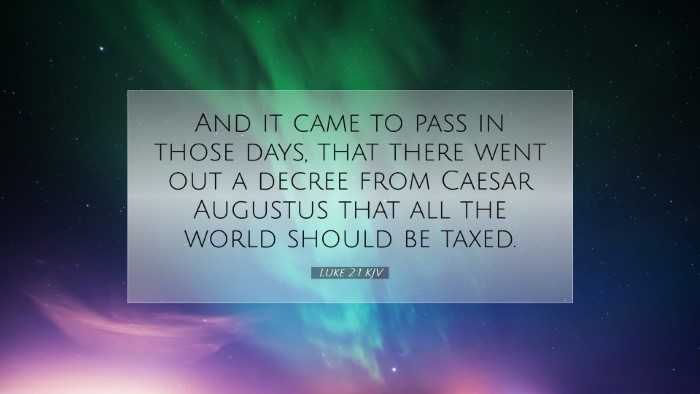Summary of Luke 2:1
Luke 2:1 states: "And it came to pass in those days that a decree went out from Caesar Augustus that all the world should be registered." This verse marks a significant moment in biblical history, initiating the unfolding of the events surrounding the birth of Jesus Christ. Below, we explore its implications and theological insights derived from public domain commentaries, including those of Matthew Henry, Albert Barnes, and Adam Clarke.
Contextual Background
The historical context here is pivotal; this decree from Caesar Augustus reveals the political landscape of the time. Augustus, the first Roman emperor, is recognized for his role in establishing the Roman Empire’s peace (Pax Romana). His edict serves not only as a governmental action but also fulfills prophetic scripture, highlighting God's sovereignty over human affairs.
Commentary Insights
Political Significance
Matthew Henry notes that this decree is indicative of the tremendous authority wielded by Augustus. The requirement for "all the world" to be registered illustrates the extent of Roman control and the systematic nature of governance. This serves as a backdrop for the humble arrival of the Messiah, contrasting God’s heavenly sovereignty against earthly dominion.
Divine Providence
Albert Barnes elaborates on the theme of divine providence. He suggests that this registration was part of God’s divine plan that would lead Mary and Joseph to Bethlehem, fulfilling the prophecy found in Micah 5:2 concerning the birthplace of the Messiah. Barnes emphasizes that God can use the decrees of earthly rulers to accomplish His purposes, which is a powerful reassurance of His control over history.
Historical Context
Adam Clarke provides additional historical detail concerning the census. He explains that Jewish people were required to return to their ancestral homes for registration, which for Joseph meant traveling from Nazareth to Bethlehem. This journey underscores the humility of Christ’s birth. Clarke also points out that such censuses were not uncommon in the Roman Empire as a means to assess resources and taxation.
Theological Implications
This single decree encapsulates significant theological implications:
- The Humility of Christ: Christ, the Creator of the universe, chose to enter the world amidst the decrees of men, illustrating profound humility.
- Fulfillment of Prophecy: The decree not only orchestrates a historical event but also serves God's purpose of fulfilling His promises regarding the coming Messiah.
- Sovereignty of God: The move by Augustus portrays the juxtaposition of divine sovereignty against political machinations; God used a secular decree to fulfill divine purposes.
Application for Today's Believers
For pastors, scholars, and students of the Bible, Luke 2:1 serves as a reminder of God's omnipotence and providence. The exploration of this passage encourages the faithful to trust in God’s grand narrative being woven through the events of their own lives. In a world often described by turmoil and chaos, this passage reassures believers that even within the structure of governmental authority, God's plans are unfolding.
Calls to Action
- Embrace Humility: Like Christ, Christians are called to embrace humility in their dealings, recognizing that greatness in the Kingdom of God often comes through service.
- Trust in God’s Plan: This narrative encourages believers to trust that God orchestrates events for His glory and the good of His people, even when circumstances seem contrary.
- Recognize Divine Sovereignty: Believers are invited to acknowledge God's sovereignty in all political and personal decisions, reminding them that no ruler is beyond God's reach.
Conclusion
In conclusion, Luke 2:1 is a rich verse laden with historical, political, and theological meaning that affirms God’s grandeur. It invites those who study the Word to delve deeper into the realization that God’s purposes are revealed through time, revealing His continual faithfulness throughout history. The insights from Matthew Henry, Albert Barnes, and Adam Clarke create a tapestry of understanding that enriches the study of Scripture and encourages believers to anticipate the fulfillment of God’s promises in their lives.


